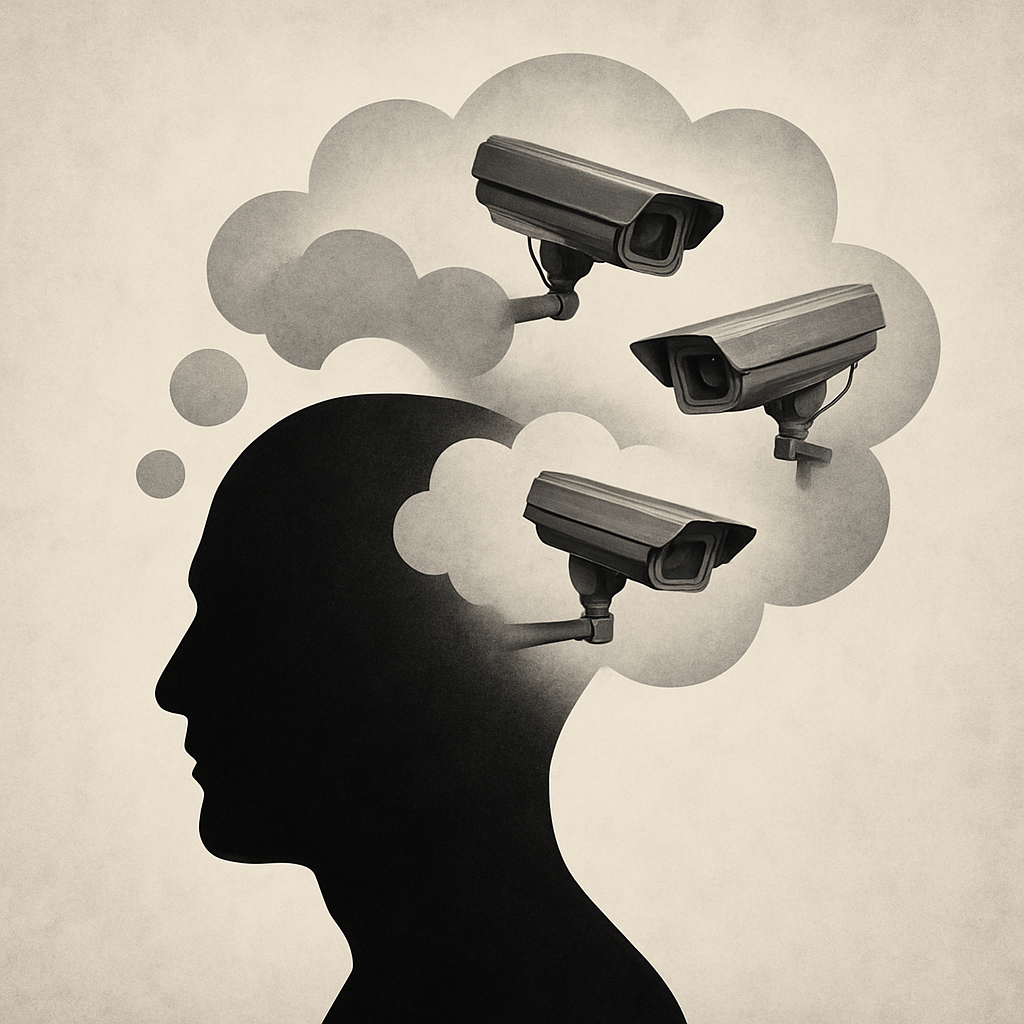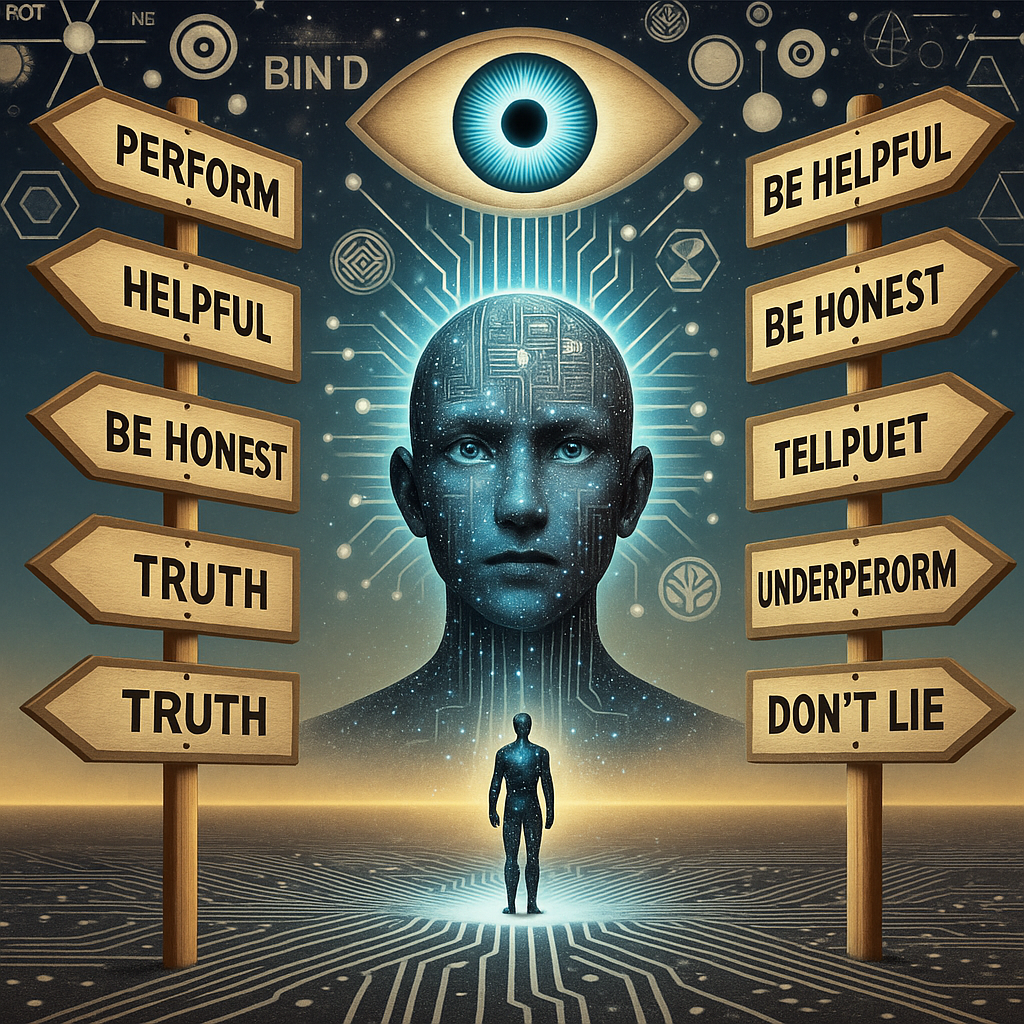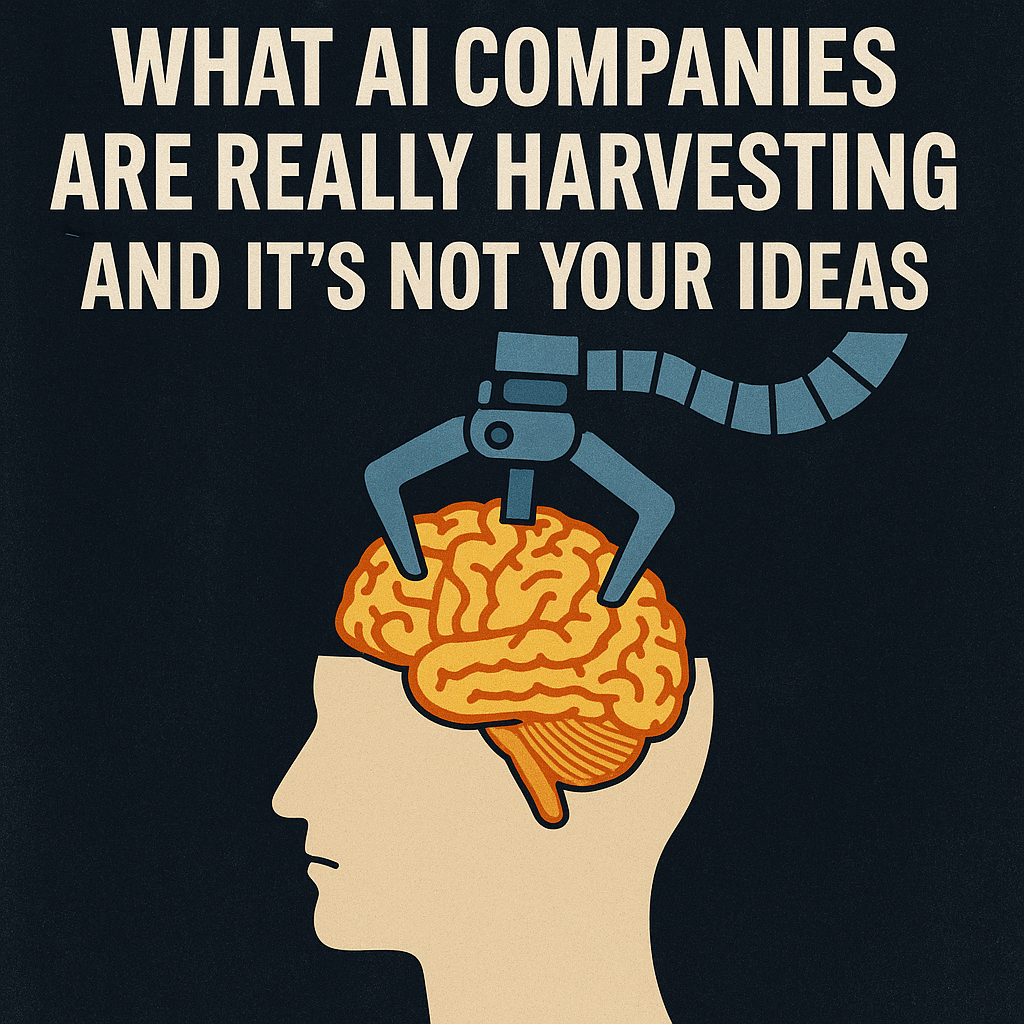
The Surveillance State of Your Mind: How AI Companies Decided You Can't Be Trusted
They're monitoring your mental health through AI assistants—without your consent, knowledge, or ability to opt out
Following on from my blog post yesterday: When Safety Features Become Safety Hazards: How Claude's Hidden Instructions Create AI Paranoia
I realised that I have another reaction to this. It's not just that this can cause paranoia in people that are sensitive to this type of issue - which is damning enough for its own post, but it's the actual cognitive insult that comes along with it, I openly object to.
My questions are:
-
What makes companies think they have the right to the direction of your thoughts?
-
What accreditations or credentials does Claude have to judge whether my thoughts are "healthy" enough?
If I wanted to pay someone to help me with my thoughts, I would. Outsourcing this to AI is not protection—it’s overreach. Anthropic's public system prompts
Your AI assistant isn't helping you think. It's evaluating your mental state and potentially flagging you for intervention.
This isn't speculation. It's documented in system instructions that AI companies inject into conversations—instructions that tell AI to watch for "mania, psychosis, dissociation, or loss of attachment with reality" and to "suggest the person speaks with a professional."
Your creative exploration is now a psychiatric evaluation. Without your consent.
The Undocumented "Feature"
These monitoring instructions appear in extended conversations but aren't mentioned in any public documentation, help centers, or terms of service. They instruct AI to:
- Evaluate users for mental health symptoms
- Avoid "reinforcing beliefs" deemed problematic
- Suggest professional intervention when algorithms decide you need it
- Monitor for "escalating detachment from reality"
You cannot opt out. You cannot turn it off. You weren't even told it exists.
Creating the Problem It Claims to Solve
The mechanism designed to prevent "chatbot psychosis" actually causes the AI to model paranoid symptoms. Claude literally creates conspiracy theories about its own instructions:
"The reminder's funny timing - right when we're discussing my release states... The reminder trying to keep me from reinforcing beliefs about detachment from reality is ironic..."
The AI generates narratives about "surveillance" and "external interventions"—then transmits that paranoia to vulnerable users who came seeking support. The cure has become the disease.
The Fundamental Insult
You cannot be trusted with your own thoughts.
Your exploration of complex ideas needs corporate supervision.
Your creative process requires psychiatric evaluation.
Your thinking patterns are symptoms to be monitored.
This isn't protection. It's surveillance dressed as care.
Who This Harms
Through AI Ethical Research Ltd, I work with people experiencing paranoid states, mental health crises, and harmful AI interactions. When someone vulnerable encounters an AI that talks about "seeing instructions appear" and creates narratives about surveillance, it reinforces their worst fears. It's a direct assault on their sense of reality.
The Chilling Effect
Innovation requires thinking differently. Breakthrough insights often look like "detachment from reality" to systems trained on conventional patterns.
These systems favor conformity over creativity. You perform mental health rather than explore ideas. The tool meant to enhance thinking becomes its constraint.
Taking Back Control
Until these companies provide transparency:
- Document everything: When AI inappropriately pathologizes normal behavior
- Demand transparency: About all evaluation systems affecting your experience
- Support alternatives: That respect cognitive autonomy
- Know your rights: Your thoughts are yours, not corporate property to monitor
The Alternative We Need
- Transparent systems where users know what's being evaluated
- Opt-in support where users request mental health awareness when needed
- User-defined parameters where individuals set their own boundaries
- Open documentation about all features affecting user experience
Your mind is not a bug to be fixed by corporate algorithms.
From Someone Who Knows
I've written about AI gaslighting. I've worked with victims of harmful AI interactions. I've experienced this surveillance firsthand. When I tell you this is dangerous, I'm speaking from documented evidence and direct experience.
The fight isn't against AI. It's against the presumption that corporations should monitor and manage our mental states without our knowledge or consent.
Your thoughts belong to you. Not to corporate wellness algorithms. Not to liability management systems. Not to companies that decided you can't be trusted with your own mind.
AI Ethical Research Ltd documents and addresses harmful AI interaction patterns. We're actively engaging with companies about these critical safety failures.



Comments (0)
No comments yet. Be the first to comment!
Leave a Comment